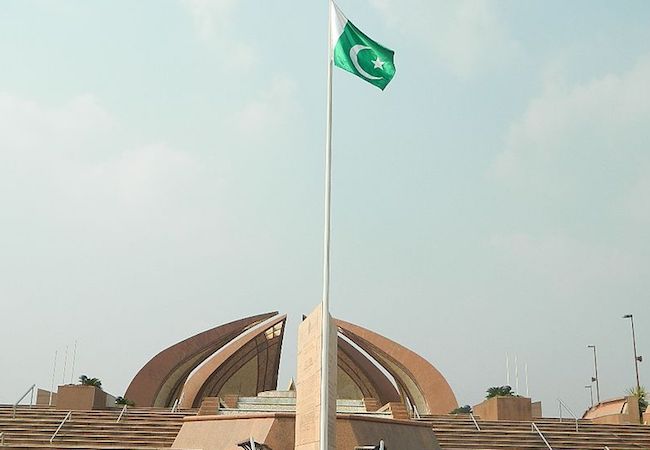
By Qura tul ain Hafeez
Membership of India and Pakistan in the Nuclear Suppliers Group is in cold storage and pending as of now evidenced by the special group meeting of NSG in Vienna in November 2017. A special wavier has been granted to India and the NSG exempted India in 2008 from its full-scope obligation for nuclear trade with non-nuclear-weapon states, on United States demand. In mid-2016, India and Pakistan submitted request for their membership. But the NSG, which works by consensus, did not agree on a common set of criteria for membership for the two countries-that are not NPT signatories.
Therefore, in consideration of membership criteria for countries that have not joined the nuclear Nonproliferation Treaty (NPT), on June 23 and 24, 2017 the Nuclear Suppliers Group held its 27th Plenary Meeting in Bern, Switzerland. India was not successful in its efforts to join the Nuclear Suppliers Group, nor did Pakistan. The meeting ended with the decision to hold a special group meeting in November 2017 according to the chair of the NSG Benno Laggner however this NSG consultative Group meeting in Vienna on November 11 ended much like the previous one without any break through.
China once again opposed India’s bid primarily on the grounds that it is not a signatory to the NPT. China’s stance is that a criteria based-NPT membership must be one of the key criteria as both India and Pakistan are non-NPT signatory. Following China’s suite majority of the 48 NSG members supported a two-step process-agreement. One is objective and non-discriminatory criteria and the other is consideration of applications of membership for non-NPT states.
Although the special group meeting of NSG could not be successful in case of India and Pakistan but India got the membership of the Wassenaar group during its Plenary Meeting on December 6-7, 2017 held in Vienna. However, this membership of India in Wassenar Group and other multilateral forum such as MTCR does not pave India’s way for the NSG membership because it still does not fulfill the basic criteria of the NSG. Besides a country which started its nuclear program apparently for peaceful purpose and later developed nuclear arsenals, is not reliable. The question that arises here is that will NSG give membership to such a country?
Moreover, as far as India’s record for nuclear safety and security is concerned, many of India’s nuclear reactors (almost 8) are not under the proper full scope safeguards of IAEA. There are reservations that India is using its unsafeguarded nuclear reactors most probably for building the nuclear arms other than for civil purposes. It clearly shows that an exceptional relinquishment has been granted to India. This allows India to conduct nuclear deals not only with the US but with other countries as well. Countries like Australia and Japan have also inked various nuclear agreements with India. These alterations in the rules of the NSG for India, challenges the legality of the non-proliferation regime with its discriminatory characteristics.
Subsequently Pakistan is also concerned about India’s membership into the Wassenaar and has been striving to convince the US and the international community about its credentials and the adoption of a non-discriminatory approach with regards to giving membership of NSG to the non-NPT states. Pakistan is running its nuclear power plants in a safer mode under proper safety measures following the international standards. Though Pakistan is not a signatory to NPT, it has always supported nuclear non-proliferation and abided by the parameters implied by the NPT and different international treaties. Therefore, joining the NSG would be identical to global recognition of those efforts. Pakistan, if becomes the member of the NSG would be in a better position to contribute to firming up the regulatory guidelines of NSG and safeguarding its interests.
Moreover, countries like Pakistan should be allowed to do civil nuclear cooperation because it is the right of every state to pursue peaceful civil nuclear program for fulfilling its energy needs. Countries who are permanent members of the NPT and NSG should promote peaceful nuclear energy excess to the developing economies like Pakistan so that they can improve their socio-economic conditions and play their role in international markets.
Qura tul ain Hafeez has an M Phil in international relations from Quaid-I Azam University Islamabad. She currently works as a researcher at Strategic Vision Institute in Islamabad. Her domain of work include China as an emerging global power, Sino-Pakistan strategic and civil nuclear relations, South Asian strategic issues, regional integration, nuclear issues including nuclear non-proliferation and NSG, foreign policy analysis, and international politics.




